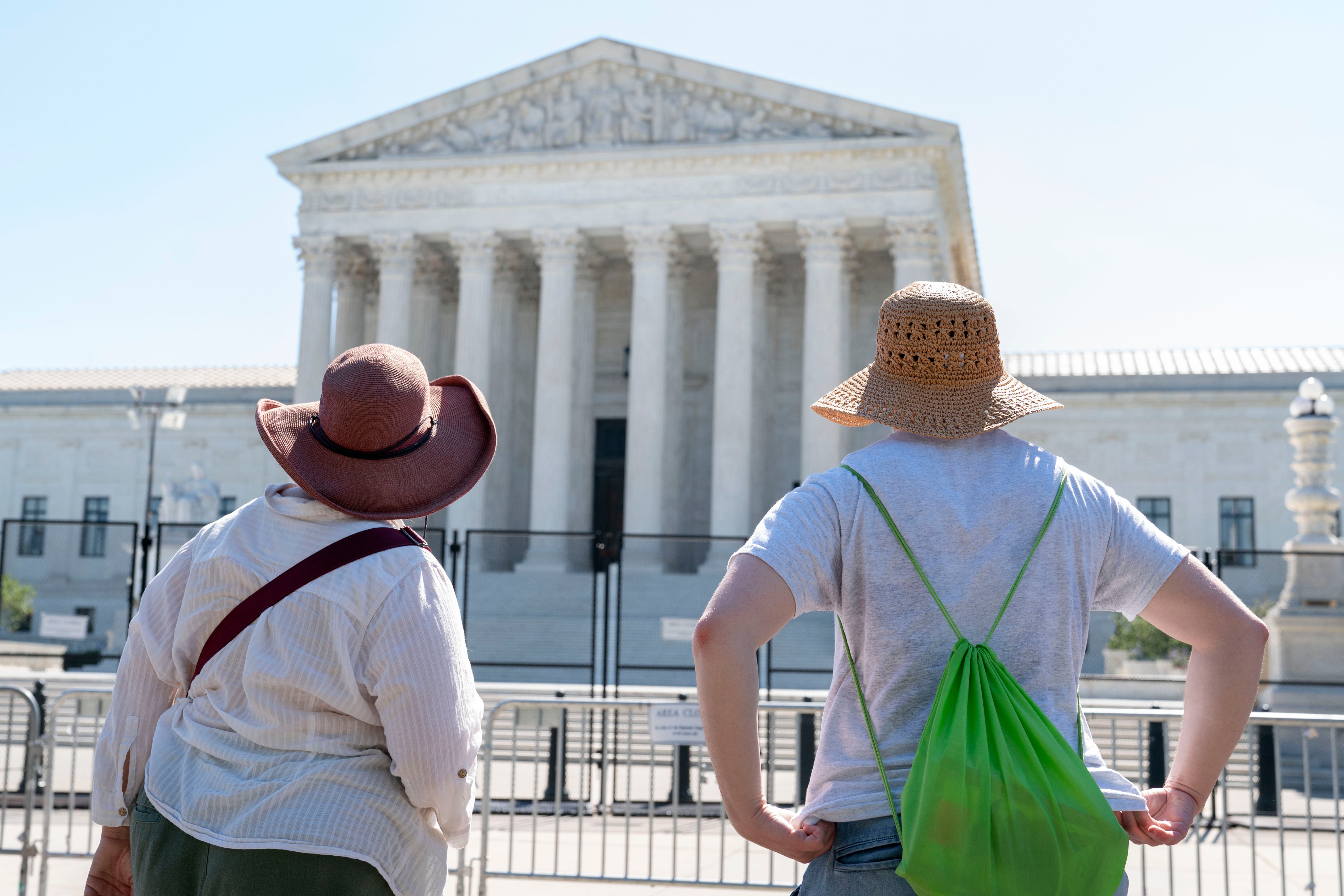Justices to hear GOP appeal that could limit state courts
The Supreme Court has agreed to hear an appeal from North Carolina Republicans that could drastically limit state court authority over congressional redistricting, as well as elections for Congress and the presidency

Your support helps us to tell the story
From reproductive rights to climate change to Big Tech, The Independent is on the ground when the story is developing. Whether it's investigating the financials of Elon Musk's pro-Trump PAC or producing our latest documentary, 'The A Word', which shines a light on the American women fighting for reproductive rights, we know how important it is to parse out the facts from the messaging.
At such a critical moment in US history, we need reporters on the ground. Your donation allows us to keep sending journalists to speak to both sides of the story.
The Independent is trusted by Americans across the entire political spectrum. And unlike many other quality news outlets, we choose not to lock Americans out of our reporting and analysis with paywalls. We believe quality journalism should be available to everyone, paid for by those who can afford it.
Your support makes all the difference.The Supreme Court on Thursday agreed to hear an appeal from North Carolina Republicans that could drastically limit state court authority over congressional redistricting, as well as elections for Congress and the presidency.
The justices will consider whether state courts, finding violations of their state constitutions, can order changes to federal elections and the once-a-decade redrawing of congressional districts.
The case probably will be argued in the fall.
The appeal challenges a state court ruling throwing out the congressional districts drawn by North Carolina's General Assembly that made GOP candidates likely victors in 10 of the state’s 14 congressional districts.
The Supreme Court has never invoked what is known as the independent state legislature doctrine, but four of the court's conservative justices have expressed interest in taking on the subject.
One of them, Justice Clarence Thomas, was among three justices who advanced it in the Bush v. Gore case that settled the 2000 presidential election.
It only takes four of the nine justices to agree to hear a case. A majority of five is needed for an eventual decision.
The issue has arisen repeatedly in cases from North Carolina and Pennsylvania, where Democratic majorities on the states’ highest courts have invoked voting protections in their state constitutions to frustrate the plans of Republican-dominated legislatures.